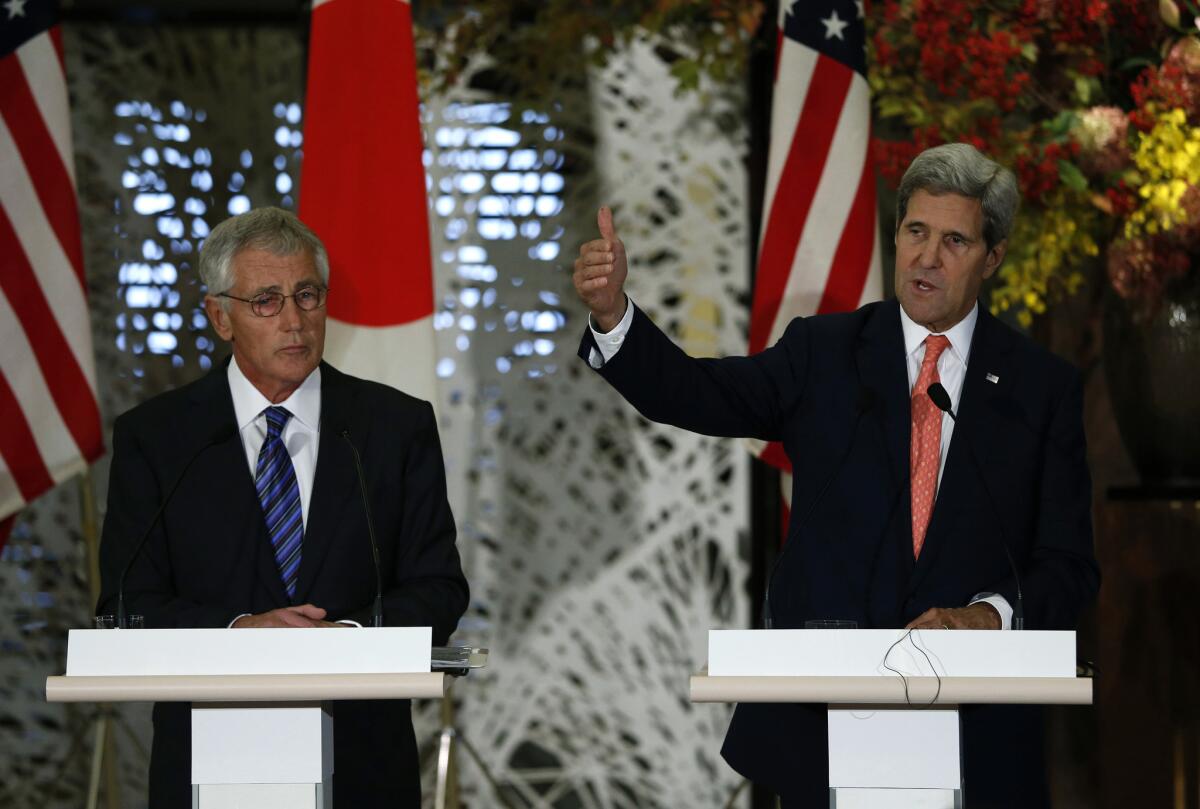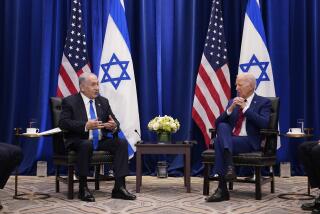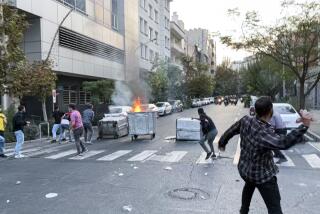U.S. not being ‘played’ by Iran on nuclear issue, Kerry insists

The United States would never allow itself to be “played” by Iran in negotiations about to resume on the Islamic republic’s disputed nuclear programs, U.S. Secretary of State John F. Kerry insisted Thursday.
Kerry and Defense Secretary Chuck Hagel met with reporters in Tokyo on the first stop of an Asian tour and cast the soon-to-resume negotiations with Tehran as an opportunity for peaceful resolution of a long and bitter standoff over Iran’s suspected pursuit of nuclear weapons.
Iranian President Hassan Rouhani vowed in his speech to the U.N. General Assembly last week that his sanctions-battered nation is eager to put Western concerns to rest that Tehran’s nuclear developments are aimed at anything other than civilian uses such as power generation and medical research.
The pledge from Rouhani that Iran will never build nuclear weapons was followed by an agreement two days later to meet with senior diplomats from the United States and five other major countries to kickstart negotiations that have been at an impasse since April.
The Iranian officials’ gestures buoyed hopes in the West of an opportunity to improve a U.S.-Iranian relationship that has been hostile since the 1979 Islamic Revolution and the hostage-taking episode that followed at the U.S. Embassy in Tehran.
But Iran’s changing diplomatic posture was met on Tuesday with deep skepticism by Israeli Prime Minister Benjamin Netanyahu, who called Rouhani “a wolf in sheep’s clothing.” The Israeli leader denounced Iranian assertions that they don’t seek the capacity to build nuclear weapons, calling them deceptions, and vowed to take whatever action is necessary to prevent Tehran from reaching “breakout” capability.
Kerry and Hagel appeared to be trying to recover the more hopeful outlook for Oct. 15-16 nuclear talks in Geneva that followed Rouhani’s speech and Western diplomats’ congenial interaction with U.S.-educated Iranian Foreign Minister Mohammad Javad Zarif at the U.N. gathering.
“It would be diplomatic malpractice of the worst order not to examine every possibility of whether or not you can achieve [a nuclear accord] before you ask people to take military action and do what you have to do to prevent it,” Kerry said.
“You have to exhaust the remedies before you ratchet up to a next tier,” Kerry said, alluding to earlier threats of airstrikes against Iranian nuclear facilities if and when the international community sees Tehran on the verge of building its own atomic arsenal.
Kerry said he and President Obama had assured Netanyahu during their meetings over the last week that the United States remains vigilant in protecting Israeli security, and that Netanyahu’s warnings of a duplicitous Tehran weren’t intended as criticism of the U.S. interest in possible engagement with Iran.
“I did not interpret Prime Minister Netanyahu’s comments as suggesting that we are being played, somehow, for suckers,” Kerry said. “I understood it to be a warning: Don’t be played.”
Iran’s actions will be closely examined to see if they match up with Rouhani’s conciliatory words, Kerry said, promising that “there is nothing here that is going to be taken at face value.”
Hagel also defended the U.S. response to Rouhani’s overtures, which included a 15-minute phone call with Obama on Friday, the first contact between U.S. and Iranian leaders in more than three decades.
“Engagement is not appeasement,” Hagel said. “It is not surrender.”
Meanwhile, in another potential sign of defrosting relations, the head of Iran’s civil aviation authority said he was exploring the possibility of reopening direct flights to the United States, which have been suspended since the revolution.
Capt. Hamid Reza Pahlavani was quoted by the pro-reform newspaper Shargh as saying Iran is prepared to restore the direct air links if the U.S. government agrees.
Airplane parts acquisition and service contracts are among the international business dealings hampered by economic sanctions imposed as punishment for Iran’s refusal to open its nuclear facilities to U.N. inspection.
Rouhani made clear during his U.N. speech that Iranians are suffering under the punitive measures that have slashed oil revenue and cut the value of their currency in half.
ALSO:
Pakistan militants attack pro-government group; at least 13 dead
Russia evacuates personnel from Libya in wake of embassy attack
Seeking new home, at least 94 Eritreans die as boat sinks off Italy
Twitter: @cjwilliamslat
More to Read
Sign up for Essential California
The most important California stories and recommendations in your inbox every morning.
You may occasionally receive promotional content from the Los Angeles Times.











